Mail art by IUOMA member Meeah Williams (Brooklyn, New York, USA)
October 31, 2015 - I am confident this Tacky Little Pamphlet (TLP) was created by Meeah Williams and that it contains her verse. Nowhere in the pamphlet nor on the envelope can I find a name. That in itself is an indication the piece was sent by Meeah Williams.
Whether parody or a sincere effort (it doesn’t matter in this case), I find Fietud a brilliant contribution to the genre that the late Bob Grumman named Otherstream. Fietud employs found material, the cut-up technique, (a form of) erasure, possibly original but deconstructed text written by Meeah and other avant tropes. The result is a roller coaster ride of textual disruptions, jarring juxtapositions, erasures, surreal hallucinations, invented words, non-linear narratives and instances of total clarity that within a moment can unravel into unhinged signifiers.
Otherstream has always vacillated between the transcendental visionary and the offensive ridiculous. In Fietud, Meeah Williams does not exactly locate a balance, she finds a rhythm and a form within the lyric poem structure. Similar to their relatives who are or were industrial music composers, some Otherstream writers seek to alienate whatever micro-audience they might attract, heaping insult upon injury as a creative strategy. Fietud is surprisingly readable, but then again “readable” might not be praise in the Otherstream realm. The idea that the poems in Fietud, which are so profoundly non-rational, can be read and on some level comprehended is on a certain level remarkable in itself.
The Otherstream genre, still going strong today, originates in the postavant/postmodern writing that emerged in the final decades of the 20th century in the United States and elsewhere. For instance, it is not a coincidence that Otherstream and L=A=N=G=U=A=G=E poetry have strong similarities. They have common origins; the writers at least at one time shared common interests.
These two types, along with others, are rooted in meta-language, a preoccupation among writers who turned intensely to a close interrogation of language and its processes. Other practitioners included those working in a Post-Beat mode deeply influenced by William S. Burroughs. Other forms arose from the New York School and John Ashbery in particular. A re-assessment and re-positioning of Gertrude Stein in the Modernist canon impacted this kind of writing immeasurably.
L=A=N=G=U=A=G=E, ironically, has become part of the “Official Verse Culture” while Otherstream has continued to circulate in underground communities, including the international mail art network and (very) small publishers. Related work is being produced in conceptual writing with an emphasis on appropriation and also appears in visual poetry. Hopefully, someone will eventually take a larger view of these kinds of writing. Meeah Williams, a relative newcomer, reveals in Fietud that these modes, still experimental and largely outside mainstream discourse, offer possibilities to new generations of both readers and writers.
From Fietud by Meeah Williams. Click scan to enlarge.
Back cover of Fietud by Meeah Williams
Many thanks to Meeah Williams!
Comment
-
Comment by De Villo Sloan on November 2, 2015 at 2:36pm
-
Wonderful and insightful commentary, Thom. Thx so much!
-
Comment by Thom Courcelle on November 1, 2015 at 2:12pm
-
Were you an poetry critic in another life, DeVillo? Nice write-up.
Indeed--parody or sincere--it does what art ought to do, which is evoke emotion. The old-fashioned feel of the physically laid-out typography, the broken script as though machine-errored, leaving the reader, completely in a surreal angst, for desperately wanting/needing to know the story in each incident of a poem. Particularly effective, the use of "things" that immediately create a market for our sense of innate relatable story-absorbing. By which I mean, like in Unbor, the use of body parts and the senses: haunches, tongue, finger, hand… and intimate senses: feel moistness, taste salt. Or like in Nump Ovit, the overwhelming sightline of feeling minuscule by the overpowering size of the world and the universe: Earth-size cosmos, the sun, death, the horizon [of?] a planet… But never having the full satisfaction of knowing how those senses or landscapes succeed in elevating or crushing the protagonist.
I love Meeah's work. Wow. And that back page is a masterpiece of itself: "Art From…[???]" with the interrupted image of our ancestral line,… but being held by a contemporary limb and hand with an opposable thumb… holding synthetic mind-altering substances… "one has to go by one…" because "one" and the "present moment" is about the only kind of number or event horizon that the human mind can handle without being overwhelmed… or without the assistance of mind-altering substances...
© 2025 Created by Ruud Janssen.
Powered by
![]()

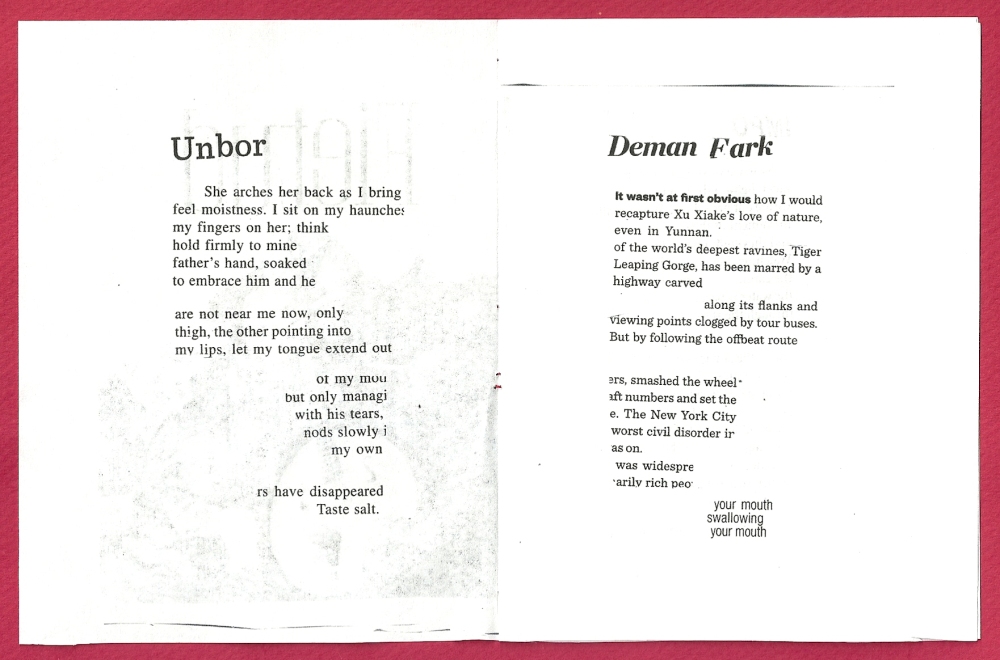
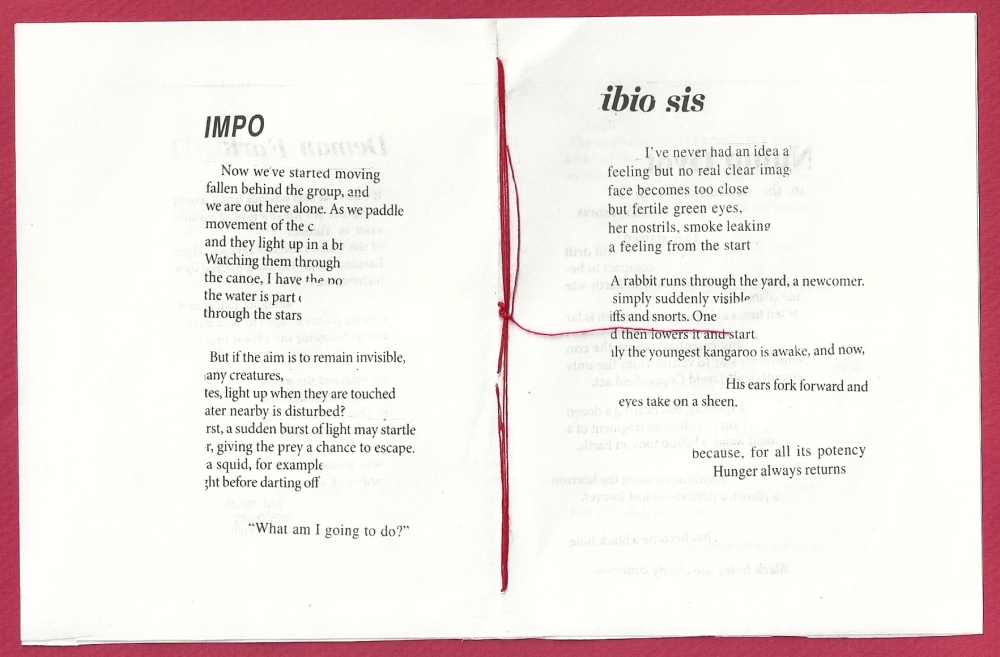
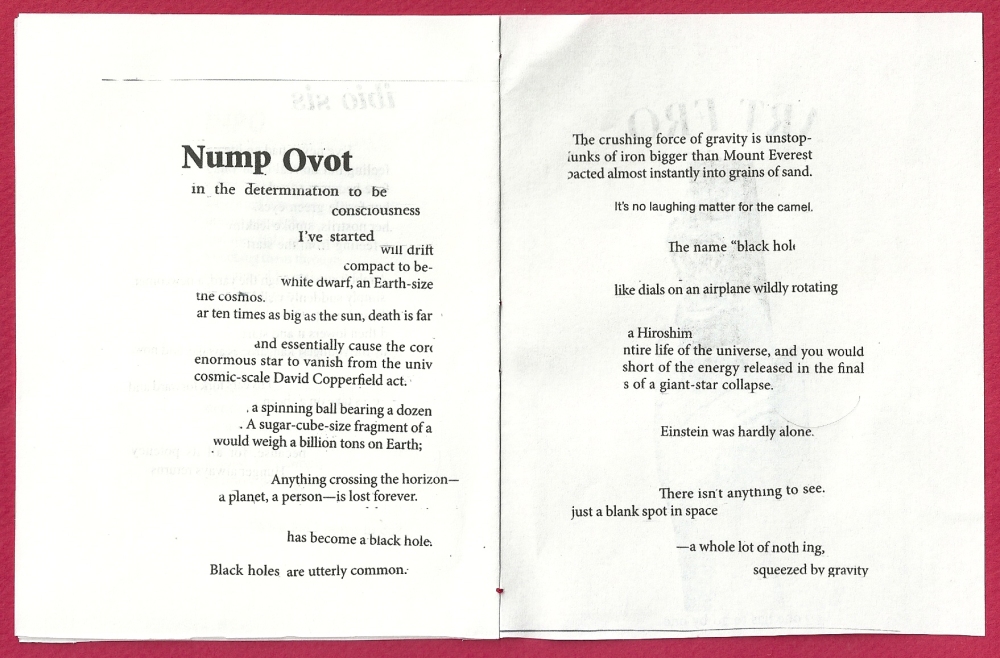
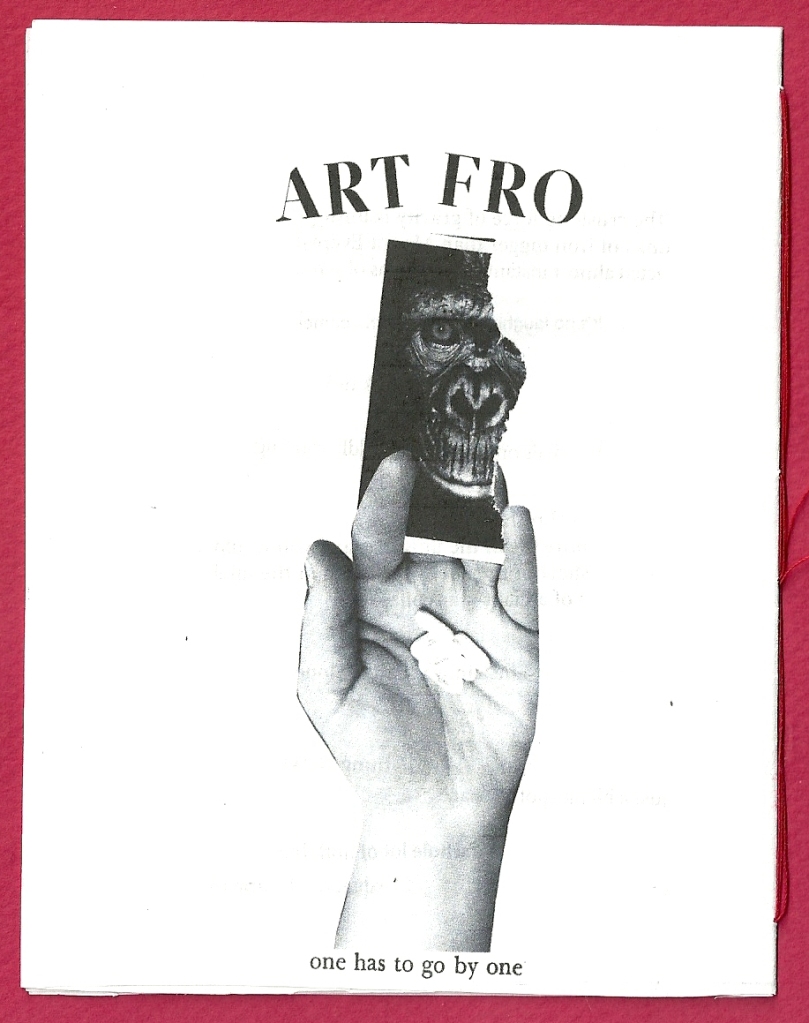
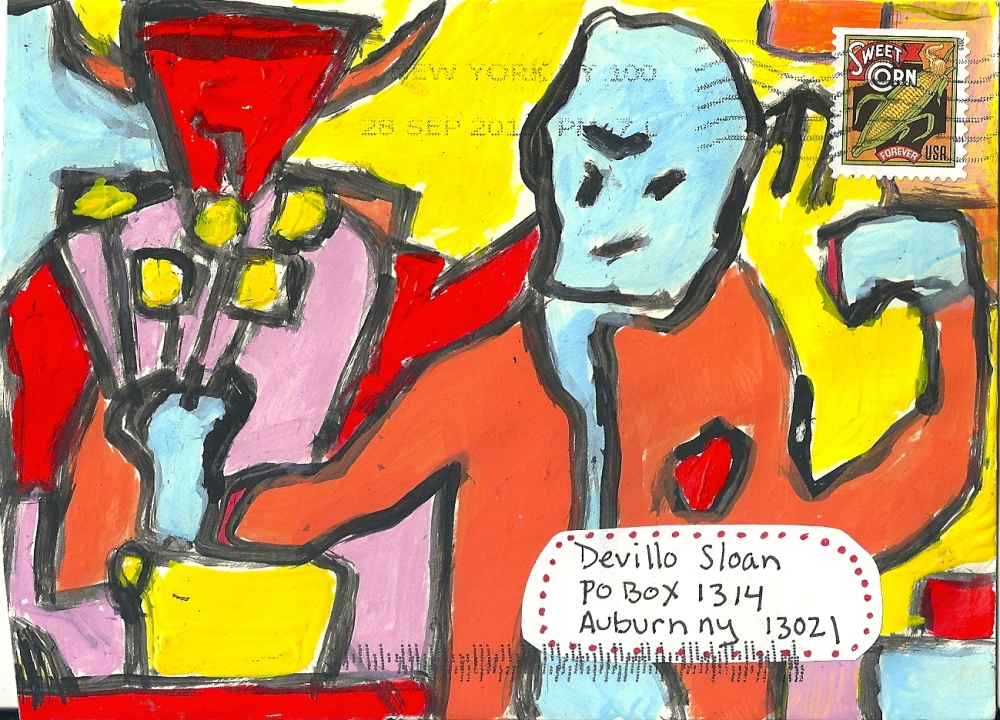
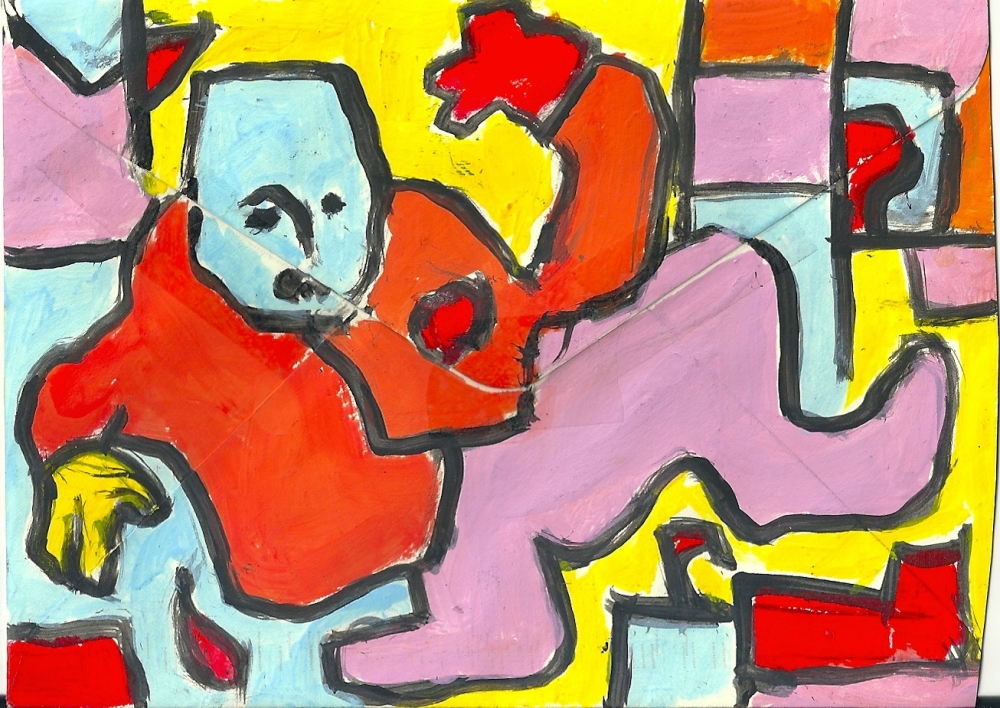
You need to be a member of International Union of Mail-Artists to add comments!
Join International Union of Mail-Artists